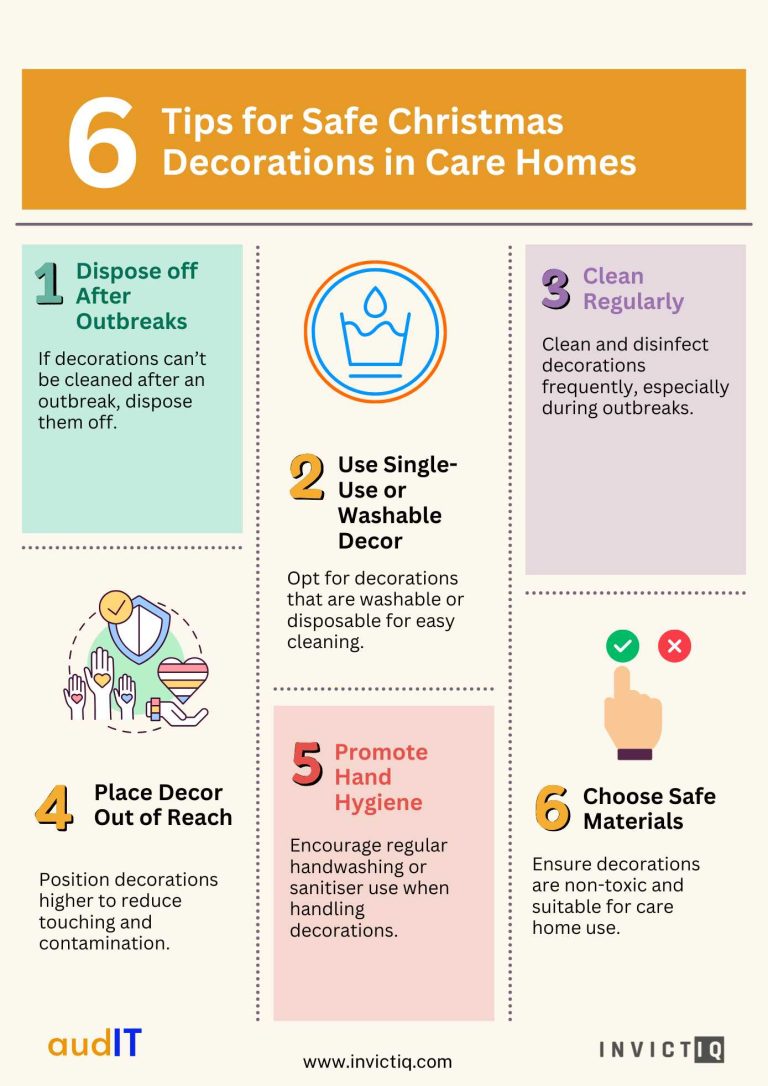@2021 invictIQ is a venture by Sprint Consultancy. All rights reserved. Privacy Policy.

A Registered Managers Quick Guide to Winter Planning
by Mark Topps
We have officially stepped into Winter, and hasn’t the temperature and weather suddenly changed! I always think of my time as a Registered Manager in the lead up to winter and Christmas and remember the stress of checking that my team, the people we were supporting and their relatives were prepared for the challenges and excitement that the season can bring. Winter can be a particularly difficult time for those in social care, with many staff torn between work and the desire to spend time with family and friends, the colder weather and shorter days and the impact this has on mental health and of course the increased risk of illnesses and disease within our services and teams. It is not all doom and gloom, and this time of year is full of joy and celebration and it is our duty as Registered Managers and business owners to ensure we effectively plan.
We all know communication is key and this during the winter months, it is essential to keep open lines of communication. I would ensure that you have established how you will push communications to your team, the people you support and their loved ones. Care home managers have it slightly easier, however for home care services, you need to also consider not being able to deliver letters/communications being in person. I saw a care home last year post about a winter planning committee they had set up with various representatives to ensure that everyone’s needs and concerns were addressed. I really liked this idea and meant that the manager could delegate some of the responsibilities to the staff involved.
Health and wellbeing should be in the top three on the priority list during the winter months. Encourage the people you support to get their flu vaccinations and ensure that they have access to any necessary medications. There have been a few providers recently inspected by the CQC who have been asked for the record of the batch number, vaccine manufacturer, date of injection and injection site on body, so be sure to keep detailed records. Some of the digital support planning systems allow this to be recorded within their systems. You should also encourage your staff team to have the vaccine and keep evidence of what you have done to promote this.
Putting my homecare provider hat on and I remember how many people did not have family or neighbours popping in over the festive period. The winter months can be isolating, particularly for those who have limited mobility. Encouraging social interaction and providing opportunities for engagement can help combat feelings of loneliness and isolation. You could consider organising social events (in-person and virtually), speaking to the people you support about increasing their visits or duration of visits and signpost them to community organisations,
We should all have contingency plans in place, however it is important that we conduct a thorough review of possible risks and hazards that could impact the service, such as icy pathways/driveways, inadequate heating, power outages, staff absence, flooding etc. For each risk identified, you should ensure you try to mitigate these. For example purchasing grit in advance of the ice/snow, ensuring the boiler is serviced, making sure rotas have been finalised to ensure adequate staffing etc. Document this, as it is great evidence for CQC on how you are being proactive to manage risks.
Relatives of the people you support also play a crucial role in winter planning. Keeping them informed and involved can help ensure that they are able to provide additional support and reassurance to their loved ones. This might include providing information on how they can help with winter preparations, such as checking in on their relatives regularly, helping with shopping and ensuring that their homes are safe and warm. In care homes, many relatives want to be involved, so be sure to utilise this resource and bolster your staffing arrangements.
For your team, winter planning should include ensuring that they are well equipped to carry out their duties safely and effectively. This might involve providing additional training on winter safety, ensuring that they have access to appropriate clothing and equipment, reminder to have their vehicles checked to ensure they are winter-ready, ensuring they have emergency packs should they break down in the community etc. Regular check-ins and providing opportunities for team members to share their concerns and suggestions will aid development of a supportive organisation.
Prior to the COVID19 pandemic, there was little to no awareness about decorations however since, it is the main talking point each Christmas as it would be silly of me not to include this, especially with the increase of norovirus and the flu at the moment. There is guidance from most NHS trusts on this however in summary you should ensure:
- If there is an outbreak of infection in the home, after the outbreak is over, if the decorations cannot be appropriately cleaned and disinfected, they must be disposed of.
- Try to choose single use or washable decorations as these can be disposed of after use or are easily washable and wipeable. This makes it easier to keep them clean and free from germs.
- Clean and disinfect decorations regularly, especially if there is an outbreak of infection in the home. If decorations cannot be appropriately cleaned, they should be disposed of.
- Try to place decorations higher up where they are less likely to be touched and contaminated.
- Encourage frequent hand washing or use of hand sanitisers for both staff and residents when handling decorations.
- Ensure that decorations are made from non-toxic materials and are safe for use in a care home environment.
It is important that despite the risks from ornaments and decorations that you allow residents to display their own decorations in their rooms.
Winter planning does not need to be a taxing task but does require a proactive approach. Winter planning is no longer just managing risks, but a holistic approach to the whole service, those using it, their relatives and loved ones and your team. Remember, do not forget to include yourself. You cannot take care of others, without taking care of yourself first.
MORE ARTICLES

Mark Topps is a social care leader who has worked in the care industry since 2004 and is currently working as a regional support manager. He regularly advocates, appearing on television, radio and podcasts and has started many campaigns for change in legislation and culture within the industry. Mark is the co-founder of The Caring View which is a social care podcast, YouTube show and free resource initiative for the sector. He also co-founded The Health and Social Care Club, which is an audio event hosted on LinkedIn. Mark is also the social media and marketing director at the National Association of Care and Support Workers.
Sign up for our newsletter

